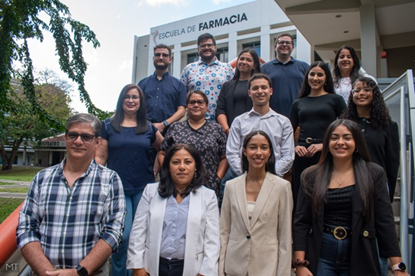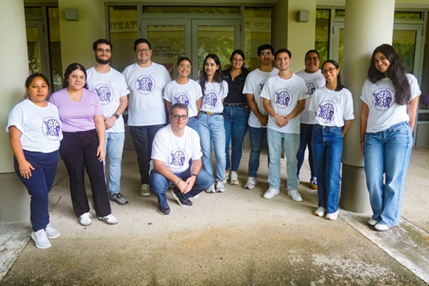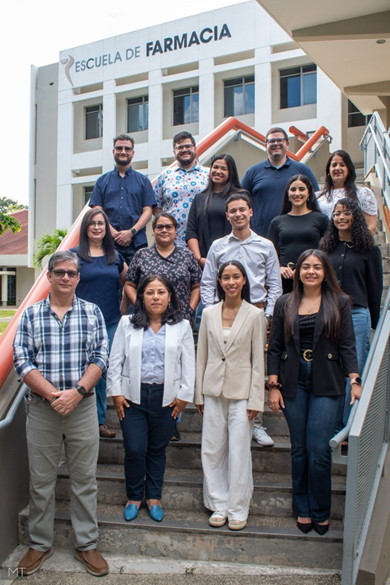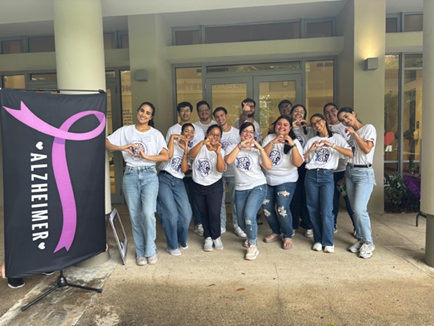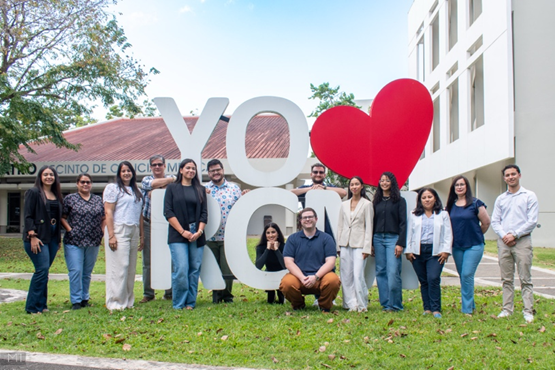Group members
Jorge Duconge, PhD, MSc, BSc Pharm

Professor of Pharmacokinetics and Pharmacogenomics. Department of Pharmaceutical Sciences, University of Puerto Rico School of Pharmacy, Medical Sciences Campus. 20+ years as a lecturer, including prior teaching experiences in the School of Pharmacy at the University of Havana and the Benemerita Universidad Autonoma de Puebla (BUAP), Mexico. Four-time “Teacher of the Year” award, School of Pharmacy, UPR-MSC. Education: BSc Pharm degree (Summa Cum Laude, Gold Medal Honor List); Master in Sciences (MSc) degree in Experimental Pharmacology and a PhD degree (Best Thesis in Pharmaceutical Sciences, National Council of Scientific Degrees) from the School of Pharmacy at University of Havana. Fellow of the advanced residency program in Pharmacokinetics/ Pharmacodynamics (Cambridge University, UK).
Dagmar Hernandez, MD.

Dagmar F. Hernandez-Suarez, MD, MSc is a cardiology fellow at the University of Puerto Rico School of Medicine (UPR-SOM). Dr. Hernandez-Suarez completed a Post-Doctoral Master in Clinical and Translational Science at UPR-SOM and a STTEP-UP, NRSA TL1 fellowship program at Icahn School of Medicine at Mount Sinai. Since the beginning of his fellowship, he has worked on both structural heart disease and pharmacogenomics of antiplatelet drugs. He is currently working in a proposal aimed to apply artificial intelligence in the generation of prediction models for transcatheter valve replacement/repair-related adverse outcomes. He plans to continue to develop a career in academic cardiology with a particular focus on structural heart disease and multimodality imaging.
Kyle Melin, PharmD.

As a researcher, I am currently transitioning from pharmacy practice-based research into clinical and translational research within the field of pharmacogenomics. I hope to position myself as a future expert in the area of pharmacogenomic guided clinical decision making, specifically in the Hispanic population. To this end, I plan to develop the research capabilities to better measure, understand, and utilize the genetic basis for observed drug response variability in the Hispanic population to enable clinicians to provide higher quality care through personalized medicine approaches to care. I have already recently become a research collaborator on a pharmacogenomic study utilizing a pharmacogenetic driven dosing algorithm in patients being treated with warfarin. However, under mentorship of an experienced research in this field, I hope to further develop myself as a researcher by conducting association studies in Caribbean Hispanics treated with clopidogrel for cardiovascular diseases. To further this transition in my research career, I have recently enrolled in the University of Puerto Rico Post Doctoral Master Degree Program in Clinical and Translational Research at the Medical Sciences Campus. As part of my application for entry to this program, I was awarded the Hispanic Clinical and Translational Research Education and Career Development (HCTRECD) Award from the National Institutes of Health. This program includes coursework in epidemiology, statistical analysis, and research design, as well as guided mentorship in my own research proposal development over the next two years. In addition, I will continue to take short courses directly in the fields of analytical, bioinformatics and clinical delivery aspects of pharmacogenetics. In fact, I have already attended a workshop organized by the PRCTRC on informed consent for genomic studies as well as a variety of grantsmanship workshops in preparation for this proposal. In addition, I am planning on completing the RxGenomix Training Program in Pharmacogenomics, an Accreditation Council for Pharmacy Education (ACPE) accredited training program through the joint providership of American Pharmacists Association (APhA) and RxGenomix. While conducting this research, I will be under the mentorship of Jorge Duconge, Ph.D., MSc, BSc Pharm, and Professor of Pharmacogenomics and Pharmacokinetics at the University of Puerto Rico Medical Sciences Campus (UPR MSC), School of Pharmacy. As PI of three previous NIH-funded grants, Dr. Duconge has experience conducting performing measures of genetic admixture in Puerto Ricans, determining frequency distribution of major genetic markers of clinical relevance, and testing genetic associations and developing pharmacogenetic-driven dosing algorithms in this population. His experience and guidance as an independently funded researcher in this field will be invaluable to my own development as a researcher.
Jessicca Y. Renta, MS, Molecular Biologist

I have been working with Dr. Jorge Duconge (School of Pharmacy) in his research projects, for the last 7 years and supporting molecular biology, genetics and genomics applications to UPR MSC users through the RCMI Program with Dr. Carmen L. Cadilla (School of Medicine) since 1998. My work ethics, previous involvement in the several PI's research activities, and my 20 years+ of experience and successful performance in the areas of molecular biology and genetics will position me in a good condition to help UPR MSC Investigators achieve their project goals.
Students
Jorge Martinez Jimenez, Graduate Student
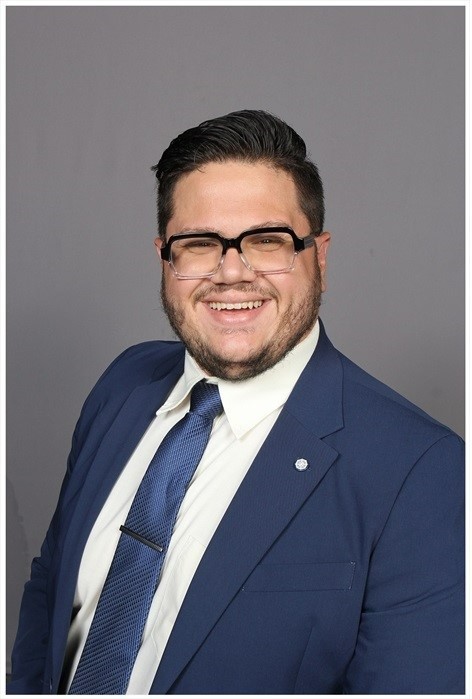
I am a Hispanic American graduate student at the University of Puerto Rico School of Medicine. I'm currently coursing my 3rd year in the biochemistry Ph.D. and working in the Human Genetics Core Lab under guidance of Dr. Duconge and Dr. Cadilla. I have received training in the fields of clinical toxicology, human molecular genetics and pharmacogenomics. Previously I studied in San Juan Bautista School of Medicine where I coursed studies to become a Doctor of Medicine. During my MD studies, I had the opportunity to participate in the Introductory Research Program in Veterans Affair Caribbean Healthcare System where I served as study coordinator for clinical studies related to platelet purification, surgical mortality and cardiovascular drugs. I am currently coursing my thesis studies under mentorship of Dr. Jorge Duconge. We are studying warfarin, which is the most used oral anticoagulant with 0.5-1.5% of worldwide prescriptions yearly. Warfarin is responsible for one-third of hospitalizations due to adverse drug reactions in adults of 65 years or older and has been ranked among the top ten drugs with highest number of adverse events during the 90's decade according to the FDA's Adverse Events Reporting System. Warfarin dose requirements vary significantly among patients (up to 10-fold the standard dose). Genetic variations in metabolizing enzyme cytochrome P450 family 2 subfamily C member 9 (CYP2C9) along with non-genetic factors account for approximately 50% of warfarin dose variability among Europeans and are the most important genetic predictors. Although it is known that interethnic variations play a role in drug response, to date the admixed Hispanic populations are still insufficiently represented in Pharmacogenetic studies. In the study we are looking to better understand the mechanism between warfarin dose variability, CYP2C9 variations and Puerto Rican patients' genetic profile. The goal is that these variants will be incorporated into an algorithm able to detect low warfarin dose requirements. Machine learning is a method of data analysis that automates analytical model building. It is a branch of artificial intelligence based on the idea that systems can learn from data, identify patterns and make decisions with minimal human intervention. Using machine learning programs such as multiclass classification machine learning, python computing language, and scikit-learn machine learning, these variants will be implemented into an algorithm that will be able to determine if there is possible dose variation in the patient. In order to do so, I have been learning and studying how to manage collected data through coding and bioinformatic tools. In order to further my professional goal, I contacted Dr. Titus Brown who runs the Lab for Data Intensive Biology at UC Davis in order to receive training. Dr. Brown will introduce me to computational thinking and large-scale data analysis on UNIX platforms, and cover genome and transcriptome analysis. We will also cover computational topics including R scripting, software installation with bioconda, cloud computing, and building efficient and automated workflows. This opportunity will be key to better develop the computational skills required to efficiently complete my thesis project.
Pablo Gonzalez Santiago, Graduate Student

I am a Hispanic graduate student at the School of Medicine of the Medical Sciences Campus of the University of Puerto Rico. I'm currently coursing my 3rd year in the Pharmacology Ph.D. program, working under guidance of Dr. Jorge Duconge and Dr. Susan Corey. My previous undergraduate studies were under Dr. Carlos Gonzalez of the Department of Biology in the Rio Piedras Campus of the University of Puerto Rico, where I received training in biochemistry and molecular biology under a laboratory setting, working on projects for the laboratory. My current thesis project is progressing under the mentorship of Dr. Jorge Duconge. Our laboratory is concerned with studying the pharmacogenomics of anticoagulant drugs and their effects on cardiovascular systems. My current project concerns clopidogrel, a covalent antagonist of P2Y12 in platelets, which inhibits coagulation in blood vessels by preventing platelet aggregation. CYP2C19, one of the cytochrome P450 proteins, is involved closely in clopidogrel metabolism and is key to its function; clopidogrel is a prodrug, and therefore requires metabolism to become biologically active. Therefore, the variations in metabolism caused by polymorphisms in the CYP2C19 gene can affect delivery and efficacy of the drug. Although it is known that interethnic variations play a role in drug response, to date the admixed Hispanic populations are still insufficiently represented in pharmacogenomic studies. We are currently looking to better understand the underlying association between variations in CYP2C19 genomics and variability in clopidogrel efficacy, and how Puerto Rican patients' genetic profiles can fit into the broader scope of clopidogrel analysis. One tool we intend to use is machine learning. Machine learning is a method of data analysis that automates analytical model building. It is a branch of artificial intelligence based on the idea that systems can learn from data, identify patterns and make decisions with minimal human intervention. It's our hope that machine learning tools can help us develop high-throughput analysis mechanisms for better understanding of the association between dosage variability and genomic profiles.
Mariangeli Morenó Paredes, Graduate Student

I am currently a PhD student in the Department of Pharmacology and Toxicology of the MedicalSciences Campus. In 2016 I obtained my master's degree in Environmental Health, where I had the experience of researching environmental toxicology, specifically the optimization in thechemical analysis of 1-hydroxypyrene in the urine. During that period, I managed solid phase extraction coupled with High-Performance Liquid Chromatography and refined my laboratorytechniques. This opportunity gave me a enrich experience in the laboratory, both technically and intellectually since my undergraduate research was based on eco-informatics using databasesrelated to the factors affecting chlorophyll reservoirs in Puerto Rico. Currently interested in pharmacogenomics and how it translates to clinical research in order to improve the outcomes ofpatients under drug treatment. Under the guidance of Dr. Duconge and Dr. Corey, I will be workingon the main project of the laboratory titled: "Adopting a Precision Medicine Paradigm in Puerto Rico: leveraging ancestral variety to identify predictors of clopidogrel response in Caribbean Hispanics".
Hector Nuñez Medina, MD, Recruitment of Patients

I have the necessary clinical experience, mentoring and motivation to successfully complete the proposed research project. I have an adequate background in molecular biology and formal training in internal medicine which provides me optimal understating of the fundamental aspects associated with the proposed research. My prior work is diverse and includes topics in obesity, bariatric surgery, cardiovascular diseases, and pharmacogenomics. As a new investigator, I have collaborated with other colleagues in exploring metabolic effects of bariatric surgery, and the association of cardiovascular pathologies with antiplatelet therapies, and pharmacogenomics. As an internal medicine physician, I also have the expertise for evaluating the clinical variables associated with the proposed work. My molecular biology background also provides me with the ability to understand the mechanism involved in drugs metabolism and genetic influence.
Dr. Ariel Gonzalez, MD, Recruitment of Patients

I believe that science is always on the verge of profound discoveries. We are permanently devising new techniques to see the micro-world with higher definition and understanding. From the first moon landing to the first genome sequencing, we are going places. As a scientist, I am fascinated by the science of the "omics" and the new depths it will uncover. Through this discipline, we will shed new light into the medical discipline and empower Precision Medicine. I am passionate about research, technology, and Cardiovascular Health. Currently, I am completing an Internal Medicine Residency at the University of Puerto Rico (UPR) with a simultaneous Masters in Clinical and Translational Research. My interest in research became evident while working as a recruiter for Clinical Trial of MUC1 Vaccine in Patients with Newly Diagnosed Advanced Adenomas; and continued growing, while managing the Puerto Rico Familiar Colorectal Cancer Registry (PURIFICAR) database.
Now I work under the direction of Dr. Jorge Duconge-Soler to experience pharmacogenomics research and its impacts. We are working with Caribbean Hispanics, who use Clopidogrel, to identify genetic predictors for therapeutic success. This study has opened new research opportunities in the field of genomics and cardiovascular disease. We are on the edge of identifying new genetic risk factors for developing atrial fibrillation in our unique community. This research not only can help reduce the atrial fibrillation disease burden but can elucidate its complex etiology. We are part of research that can reduce health disparities. With my academical background and progressive understanding of genomics, I believe to be well suited for this project. I am confident that with our discoveries we can champion Precision Medicine in the Puerto Rican Population.
Dr. Ednalise Santiago Cartagena

During my scientific career, I have been involved in basic sciences studying health disparities, using Saccharomyces cerevisiae as a model. In my Ph.D., I was trained in molecular biology, genetics, and proteomic techniques, specifically: protein purifications, mass spectrometry, western blot, bioinformatics, DNA and RNA isolation, PCR, Real Time-PCR, statistical analyses, among others. One of my goals as a biomedical researcher is to conduct clinical and translational studies in the insufficiently represented Hispanic population of Puerto Rico. I am also interested in continuing studies in proteomics, health impairments, drug discovery, and pharmacotherapy. My current postdoctoral appointment is supported by an NIMHD, which is linked to the research project entitled "Adopting a Precision Medicine Paradigm in Puerto Rico: leveraging ancestral variety to identify predictors of clopidogrel response in Caribbean Hispanics" of the Center for Collaborative Research in Health Disparities (CCRHD) at the University of Puerto Rico Medical Sciences Campus. My pilot research project consists of the following specific aims: (1) to perform a preliminary proteomic analysis of plasma collected from a group of cardiovascular patients on clopidogrel with and without high on-treatment platelet reactivity; (2) to perform a preliminary genetics of expression (GGE) analysis of data obtained from a Genome-Wide Association Study (GWAS) conducted in the same group of patients. To accomplish aim #1, I will work with mass spectrometry standardized protocols and collaborate with Drs. Melendez and Roche for the data analyses and interpretation. The goal of this aim is to provide evidence on the early expression of novel biomarkers in Hispanic cardiovascular patients with resistance to clopidogrel. For aim #2, I will perform a multi-ethnic genotyping array focused on Hispanic AMR/AFR populations, using the SCAN database as a bioinformatic analysis tool. The goal of this aim is to determine the functional consequences of pharmacogenomic variations at eQTL-enriched loci across the entire genome of individuals from the study cohort. This postdoctoral training will provide me an opportunity to expand my knowledge in new areas such as Pharmacogenetics, Genome-Wide Association Studies (GWAS), clinical and translational sciences. The technical advantages and scientific reasoning skills earned during my academic training will allow me to work as a postdoctoral researcher associate in this project. Furthermore, my previous contributions to the proteomics and genomics fields are in-line with the goals of the project, which is to use those techniques to set a scaffold for implementation of a Precision Medicine model for Hispanics. My sponsor Dr. Jorge Duconge is a leader in the field of pharmacogenetics in Puerto Rico and has an excellent publication record. Therefore, the career development plan, research training, and the help of the advisor will allow me to make a crossover to the next step in the biomedical scientist field: from basic science to clinical science. Finally, this career transition will evolve in becoming an independent translational researcher focused on health disparities.
Frances M Marin Maldonado, MS, Research Technician

I have a master's degree in Biology with specialty in Genetics from the University of Puerto Rico at Mayaguez. My thesis work focused on comparative genomics of indels in primate lineages. During the progress of my thesis project I identified 64 indels, through alignment of orthologous regions of human, chimpanzee, gorilla, orangutan and macaque (in-silico analysis), located at the 5' side of the gene and at distance of no more than 2 kb from its nearest transcription site. Indels were validated through PCR and electrophoresis (in-vitro) analysis. From this analysis, two distinct indels, which were unique to the human lineage, in genes associated to the neurodevelopment and the sexual development, MET and DMRTA2, were found. In agreement with previous literature, these findings suggested that the derived variants observed in the human lineage might be important for the processes that make the human distinct to other hominids. Therefore, from the graduate training I acquired experienced in site- directed mutagenesis and mammalian cell culture. After graduating, I worked at the Ponce Health Sciences University at Ponce, evaluating if there is an association between variants in the Protease Activated Receptor-2 (PAR-2) gene and the response of asthma-effector cells in the Puerto Rican population. In order to accomplish this, asthmatic and non-asthmatic participants were recruited, and Intracellular Calcium Assays were performed on human- derived eosinophils to evaluate PAR-2 activation. During the development of this project I worked with primary bronchial/tracheal epithelial cells and smooth muscle cells and I performed density gradient separation from complete blood to isolate and purify eosinophils. Moreover, I worked with Intracellular Calcium assays using fluorescence and absorbance techniques. Currently I am working as part of a Research Project "Adopting a Precision Medicine Paradigm in Puerto Rico: leveraging ancestral variety to identify predictors of clopidogrel response in Caribbean Hispanics" in which the main objective is to evaluate how the genetic ancestry could the affect the response of Plavix in Hispanic patients. My research interests are focused on pharmacogenetics since I believe this is fundamental to improve current therapies and is the key to individualized medicine.
Dr. Bianca Torres

I have always been interested in understanding how the brain and emotions work. I began in research as an undergraduate student in a laboratory that studied neuropharmacology. In that field, I found a branch of science, which merge my passion until that moment, neuropsychopharmacology. For my doctoral thesis, I evaluate the anticonvulsant and anxiolytic properties of natural product extracts in zebrafish. Also, I evaluate how these extracts modulate the gene expression in the zebrafish. After my Ph.D. degree, I began to teach undergraduate students, but I missed the research part of my career. In 2016, I obtained support from the National Institutes of Health (NIH) through the Hispanic Clinical and Translational Research Education and Career Development (HCTRECD) Award. With this award, I got a formal education in Clinical and Translational research and change from zebrafish to humans subjects. Dr. Duconge was my mentor during my postdoctoral master when I studied the associations of anxiety and depressive severity symptoms and being a carrier of multiple variants in Cytochrome P450 genes (CYP450) among Puerto Rican patients with Drug-Resistant Epilepsy. In 2018, I began as a faculty member in the School of Pharmacy at the University of Puerto Rico. I will continue my research with a particular emphasis on the two most common psychiatric illnesses in Puerto Rico: anxiety and depression. Our current research aims to identify genetic variants that can be used as predictors for treatment response in psychiatric conditions. With a better understanding of the effects of these variants, we will develop risk scores using genetic markers as well as clinical factors that are relevant to our Puerto Rican population. Dr. Duconge and other of my former professors are now my collaborators in this and other projects. Recently this research receives support from U54 MD007600 (NIMHD) and “COBRE Phase 2: Center for Neuroplasticity at the University of Puerto Rico 5P20GM103642-06 from the National Institutes of Health. Infrastructure support is provided in part by the NIMHD CCRHD Grant: 2U54MD007600.
Edgardo González-García

I coursed undergraduate studies at University of Puerto Rico in Rio Piedras as student Dr. Duconge gave me the opportunity to work in the laboratory extracting DNA, quantifying, and genotyping samples. I finished my bachelor’s in molecular biology in May 2021. My plans are to start studying medicine next year; in the meantime, I’m working as a fulltime laboratory tech to fulfill the goals of all the projects in the laboratory. I’m interested in the field of cardiology making this experience even more exiting. I hope to have an impact on society trough our work and to learn as much as I can.
Richard Mojica Velez
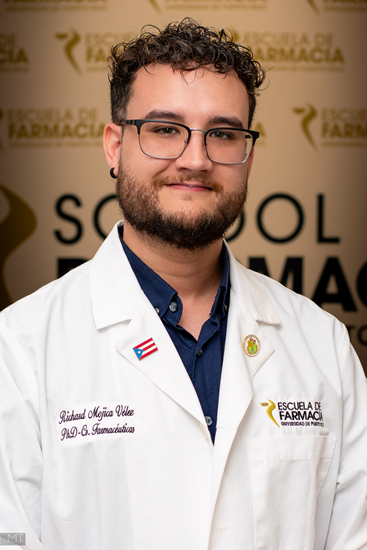
I am Richard Mojica Vélez, a third-year Ph.D. student in the Pharmaceutical Sciences program at the University of Puerto Rico - Medical Sciences Campus, School of Pharmacy. My research focuses on understanding the genetic factors associated with Major Adverse Cardiovascular Events (MACCEs) in Puerto Rico patients treated with Clopidogrel. Through a genome-wide association study (GWAS), I aim to identify genetic variants that may influence cardiovascular outcomes in this population, contributing to precision medicine efforts and improving therapeutic strategies. My work involves rigorous data analysis using statistical and bioinformatics tools, ensuring the reproducibility and reliability of findings that may enhance cardiovascular risk assessment in heterogenous populations.
d to learn as much as I can.
Genesis Rodríguez Balbuena

I am an undergraduate student in Cellular and Molecular Biology at the University of Puerto Rico, Río Piedras Campus. In Dr. Duconge’s laboratory, I have worked on projects related to Alzheimer’s disease and the social, genetic, and epigenetic determinants of clopidogrel response in Puerto Ricans. I have gained experience in DNA and RNA extraction, platelet isolation, genotyping, sample quantification, participant recruitment, among others. I was recently admitted to the Doctor of Physical Therapy program at the Medical Sciences Campus. I am extremely grateful for this opportunity, as it has allowed me to develop valuable skills that will strengthen my academic, personal, and professional growth.
Celines M. Lopez Hernandez

I am a fifth-year undergraduate student pursuing a bachelor’s degree in Integrative Biology at the University of Puerto Rico, Río Piedras Campus. In Dr. Duconge’s laboratory, I am currently working on a project focused on the relationship between genetically inferred African ancestry and perceived skin pigmentation in Caribbean Hispanic cardiovascular patients. This research aims to better understand how genetic differences influences drug response and health disparities in heterogenous populations. As part of this project, I help recruit participants and administer surveys that assess their perception of skin pigmentation. In the future, I plan to pursue a Doctor of Pharmacy degree. I am grateful for the opportunity to contribute to ongoing research at the Medical Sciences Campus and to continue growing both academically and professionally.
Jan M. Maldonado Ortiz
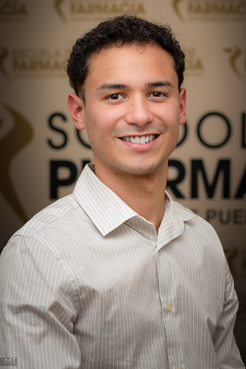
I am an undergraduate student aiming to achieve a Molecular Cellular Biology bachelor's degree. My goal is to apply for the PharmD program of the School of Pharmacy of the UPR, Medical Science Campus. I was accepted in the Pharmacy Scholars Program (PSP) of the College of Pharmacy of the University of Michigan, Ann Arbor, this being a great opportunity to gain more experience in pharmacy. In addition, I work as an undergraduate student in Dr. Duconge's research lab, where I have gained research experience and knowledge regarding pharmacogenomics. Along with other lab members, I have worked on DNA extraction from blood samples, genotyping, platelet isolation, platelet RNA extraction, blood sample quantification.
Karla A. Rosario Quiñones

I am an undergraduate student at the University of Puerto Rico, Río Piedras campus, enrolled in the Interdisciplinary Studies Program. I have gained valuable experience, in both clinical and laboratory settings. In the laboratory, I had the opportunity to work on my Capstone project, which focuses on studying the relationship between diabetes and inflammatory cytokines in the Hispanic Caribbean population living in Puerto Rico. Additionally, I participated in patient recruitment and assisted in validating an ultrahigh-performance liquid chromatography-mass spectrometry (UHPLC-MS/MS) method for determining the pharmacokinetics of clopidogrel in patients. Working in Dr. Duconge’s laboratory has further strengthened my communication skills with peers and reinforced my understanding of laboratory procedures, safety protocols, critical thinking, and scientific writing. My goal is to pursue a PharmD and while working with graduate students and mentors in the field of pharmacogenomics I have gained a better understanding of how genetics influence drug response and patient outcome which is a key aspect for doctors and pharmacists to consider providing effective and precise patient care.
Marianela Oliveras-Martinez

I am set to graduate in May 2025 with a degree in Industrial Microbiology from the University of Puerto Rico, Mayagüez Campus. Throughout my academic journey, I have gained extensive experience in microbial analysis through research and field investigations across various fields, including ecology, mycology, and genetics. This semester, I was fortunate to have the opportunity to work on the RO1 study under Dr. Duconge, The Social, Genetic, and Epigenetic determinants of Clopidogrel response in Puerto Ricans. We focused on platelet isolation, as well as RNA and DNA extraction and quantification. This work is part of a COOP credit, allowing me to gain hands-on experience while furthering my academic and professional goals. This fall, I will be pursuing a Master of Science in Epidemiology at the Graduate School of Public Health of the UPR Medical Sciences Campus. My future plans include entering a Pharm.D. program to advance my knowledge in pharmaceutical sciences and contribute to improving patient outcomes
Lityaret Hernández Resto

My name is Lityaret Hernández Resto, and I am currently concluding my science coursework to fulfill the prerequisites for the Doctor of Pharmacy (PharmD) program at the University of Puerto Rico in Carolina. My passion for health sciences and commitment to serving others inspired me to transition from a background in secondary education, where I earned a bachelor’s degree with a concentration in technology, into the field of pharmacy. As part of this journey, I assist in Dr. Duconge’s pharmacogenetics laboratory under the mentorship of graduate student Valeria Miranda. Our research focuses on how genetic variation influences the metabolism of clopidogrel in the Puerto Rican population. This hands-on experience has strengthened my skills in DNA extraction, genotyping, and data analysis while deepening my interest in personalized medicine. Participating in meaningful research that addresses real health disparities has reinforced my dedication to becoming a pharmacist. I look forward to continuing this path and applying what I’ve learned to improve patient outcomes in our community.
Laboratory Team:
